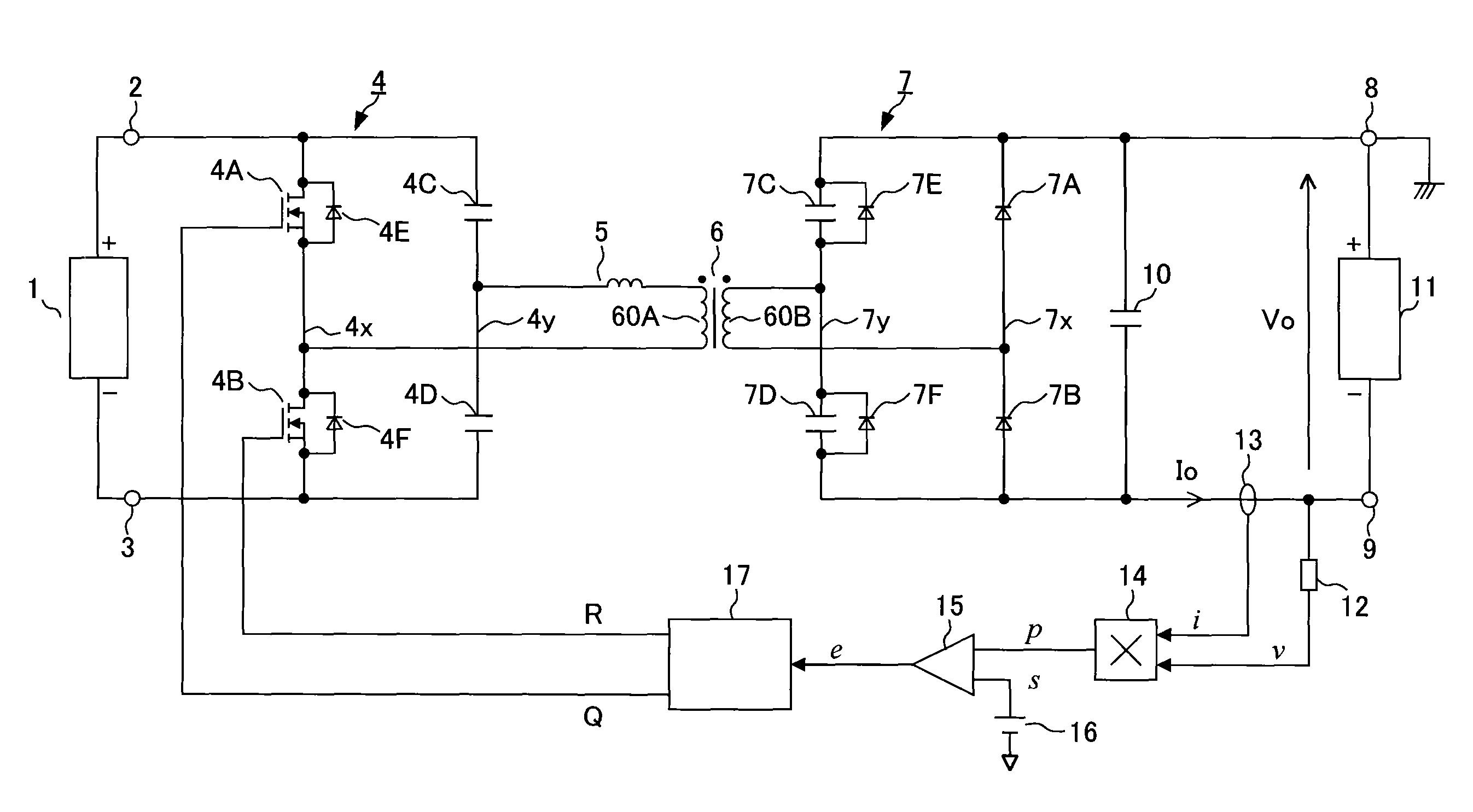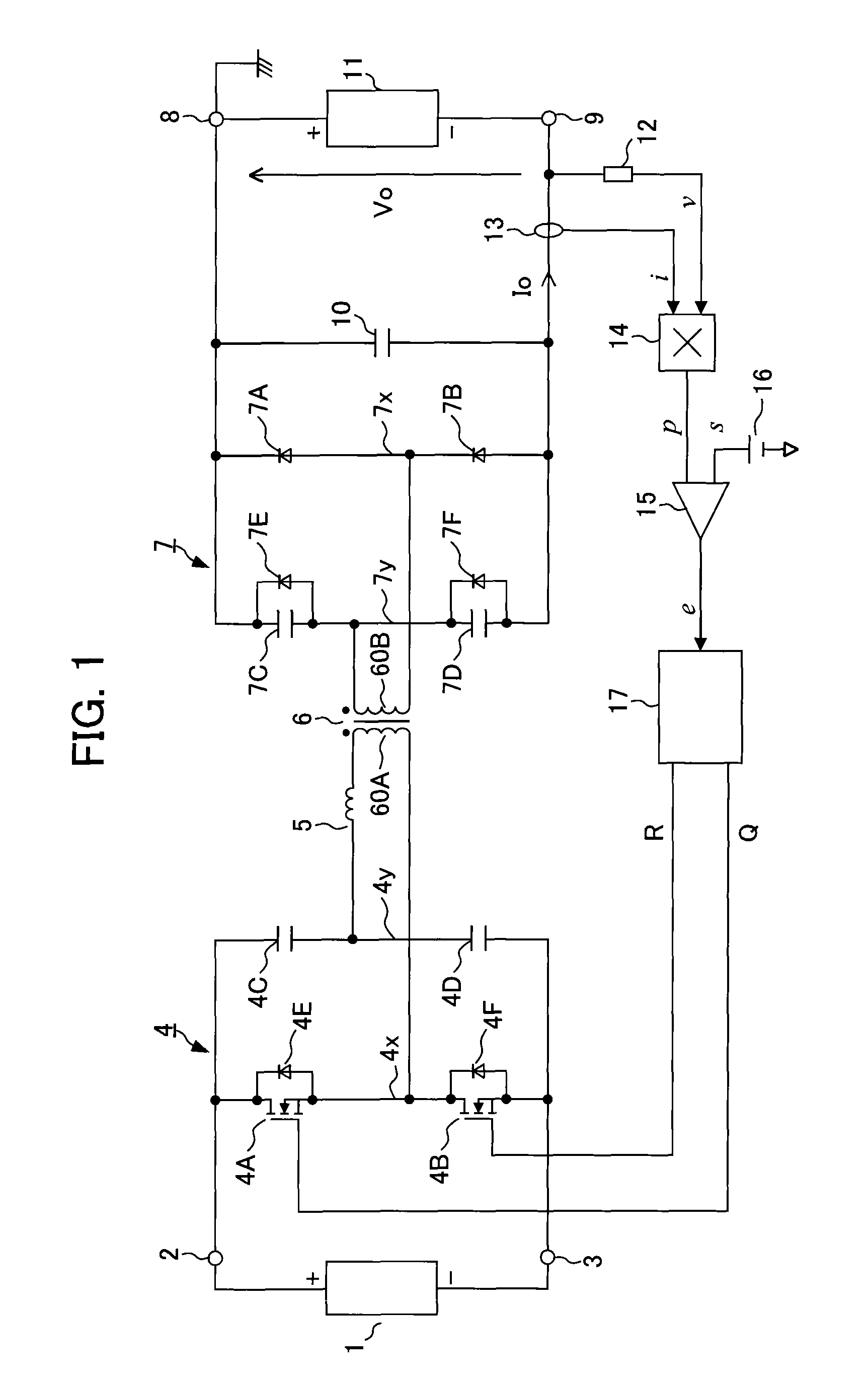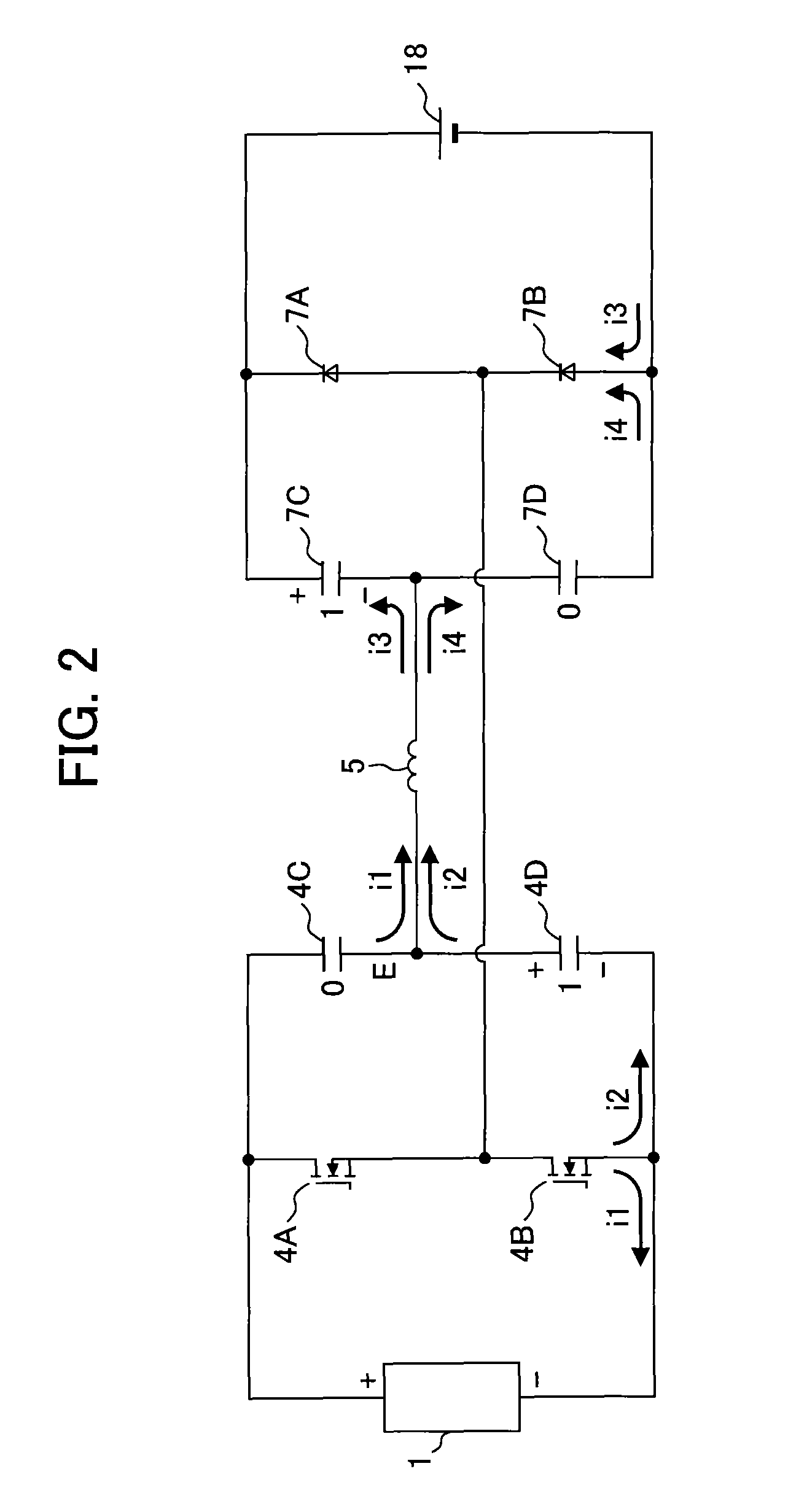Series resonant converter
a series resonant converter and converter technology, applied in the direction of electric variable regulation, process and machine control, instruments, etc., can solve the problems of reducing the power supply of the series resonant converter, increasing the cost, and deviating the resonant current waveform, so as to reduce noise, reduce power loss, and reduce the power loss
- Summary
- Abstract
- Description
- Claims
- Application Information
AI Technical Summary
Benefits of technology
Problems solved by technology
Method used
Image
Examples
first embodiment
[0027]A series resonant converter circuit of a first embodiment according to the present invention is explained with reference to FIGS. 1 to 6G. In FIG. 1, a DC power supply 1 is connected between a DC input terminal 2 of a positive terminal and a DC input terminal 3 of a negative terminal. The DC power supply 1 is a common device that is composed of a rectification circuit that rectifies single phase or three-phase AC power into DC power and a filter circuit that smoothes the DC power. In addition, the DC power supply 1 may be an energy source such as a battery or electric generator. Furthermore, the DC power supply 1 may be a rectifier including a PFC (power factor improvement circuit). In this case, an input voltage of the series resonant converter of the present invention, which is connected to a subsequent stage of the PFC, is stabilized. Therefore, since only load fluctuations should be considered regarding an operational aspect thereof, which is advantageous to the understand...
third embodiment
[0075]FIG. 9 shows a series resonant converter circuit in which synchronous rectification is applied to a secondary-side multi-functional rectification circuit 7. The rectifying diodes 7A and 7B of the secondary-side multi-functional rectification circuit 7 in the previous embodiment are replaced with rectifying MOSFETs 7G and 7H. 7I and 7J indicate internal diodes that the rectifying MOSFET 7G and MOSFET 7H respectively include. The rectifying MOSFETs 7G and 7H are alternately driven by gate signals q and r from a control circuit 17. When MOSFETs are used as the switching elements 4A and 4B of the primary-side inverter circuit 4, the MOSFET 4A of the inverter circuit 4 and the rectifying MOSFET 7G of the multi-functional rectification circuit 7 are driven by the same gate signals Q and q, and the MOSFET 4B of the inverter circuit 4 and the rectifying MOSFET 7H of the multi-functional rectification circuit 7 are driven by the same gate signals R and r.
[0076]In this series resonant ...
fifth embodiment
[0080]In the series resonant converter when the switching element 4A turns on, the primary-side resonant capacitor 4D is charged through a primary winding wire 60A of a transformer 6 and the resonant inductance means 5 with an upper terminal of the primary-side resonant capacitor 4D being positive terminal In addition, when the switching element 4B turns on, the charge of the primary-side resonant capacitor 4D is discharged through the primary-side winding sire 60A of the transformer 6 and the resonant inductance means 5.
[0081]When the primary-side resonant capacitor 4D is charged with reverse polarity, i.e. when charged so that the voltage of the upper terminal of the primary-side resonant capacitor 4D in FIG. 11 is lower than the voltage of the lower terminal thereof, the diode 4H in parallel to the primary-side resonant capacitor 4D conducts and prevents a reverse polarity charging of the primary-side resonant capacitor 4D. Therefore, since the series resonant converter circuit ...
PUM
 Login to View More
Login to View More Abstract
Description
Claims
Application Information
 Login to View More
Login to View More - R&D
- Intellectual Property
- Life Sciences
- Materials
- Tech Scout
- Unparalleled Data Quality
- Higher Quality Content
- 60% Fewer Hallucinations
Browse by: Latest US Patents, China's latest patents, Technical Efficacy Thesaurus, Application Domain, Technology Topic, Popular Technical Reports.
© 2025 PatSnap. All rights reserved.Legal|Privacy policy|Modern Slavery Act Transparency Statement|Sitemap|About US| Contact US: help@patsnap.com



